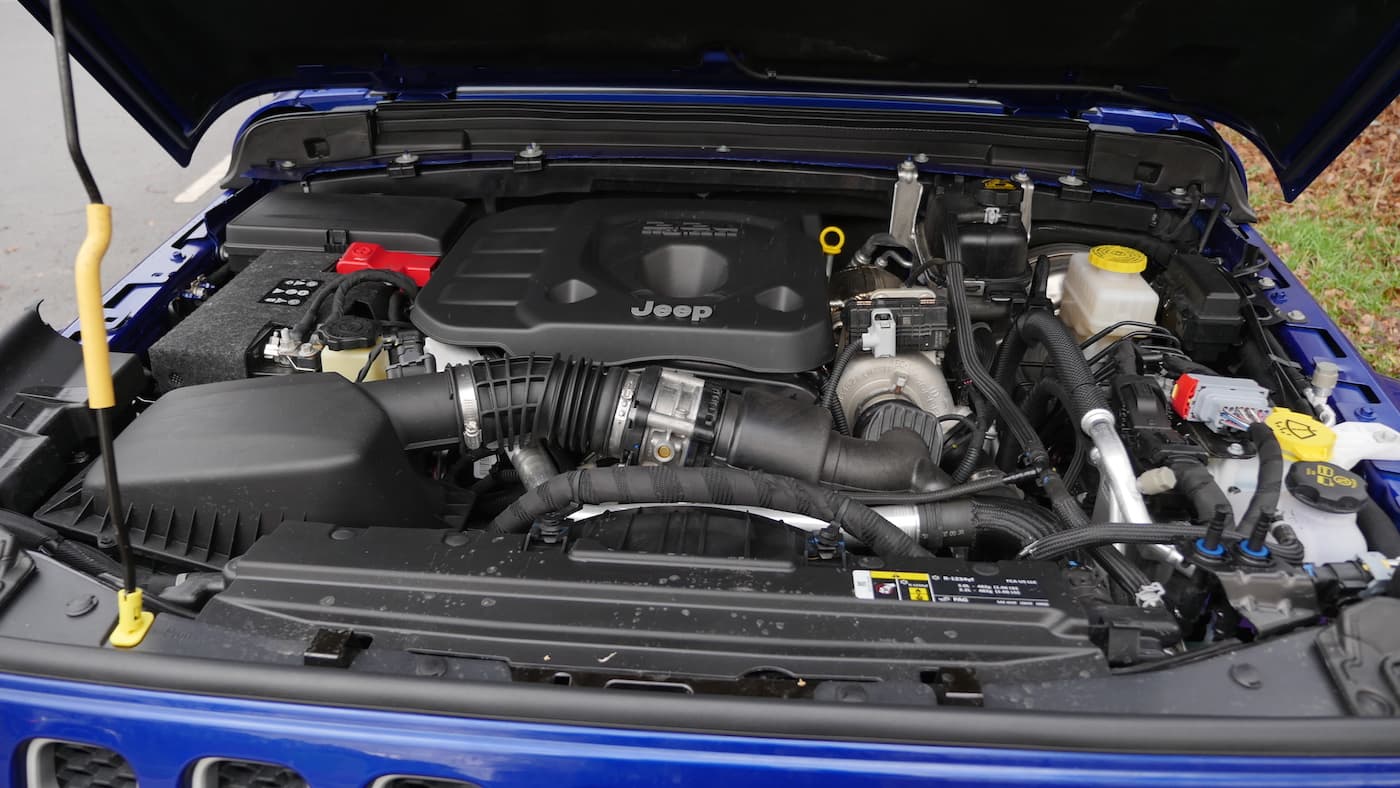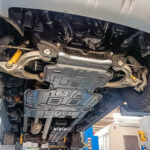
Gasoline or Diesel? Which Engine Is Better for Off-Roading and Overlanding
When choosing a 4×4, we often focus on suspension and drivetrain, but the type of engine is just as crucial – especially for off-roading, where performance matters just as much as on a racetrack. So, let’s start with the basics: gasoline or diesel? Discover which engine is better suited for off-road adventures and why.
What to Consider When Choosing an Engine. Practical Aspects
Power, fuel consumption, reliability – what really matters when choosing the right engine for a specific car model? Before diving into technical specifications, let’s first focus on the practical, everyday factors that might influence your decision. By the end, you’ll be able to answer the big question: gasoline or diesel?
Availability – Can I Buy and Refuel a Diesel Engine Anywhere?
Let’s start with availability. Not all models come with a diesel engine option, especially American vehicles that are often imported to Europe. If you’re planning to import a car from the U.S., particularly a Jeep, you’ll most likely be choosing between gasoline, hybrid, or electric options.
Why? Mainly due to strict environmental regulations in the U.S., where diesel engines have a bad reputation, and there’s a strong push for electric powertrains. Additionally, diesel fuel is more expensive in the U.S. than in many other regions. However, some brands, like Ford and Dodge, still offer diesel-powered versions of their most popular pickup models.
Emissions – Which Engine Is More Eco-Friendly?
Availability is closely tied to emissions regulations. Different countries have specific standards for allowable emissions. Many cities are introducing clean transport zones, that can impact your engine choice, especially if you plan on traveling abroad.
For example, under the Euro 6 standard in the EU, the NOx emissions limit is 0.08 g/km for diesel engines and 0.06 g/km for gasoline engines. Why the difference? Diesel engines produce more harmful emissions, which has led to stricter regulations and, in some cases, scandals involving manufacturers (remember Volkswagen?). While modern diesel engines have become cleaner thanks to advanced filtration systems (DPF, SCR, AdBlue), these additional components increase complexity and maintenance costs.
Running Costs – Is More Always Better?
Modern diesel engines emit fewer harmful particles and gases (especially nitrogen oxides), but this comes at the cost of increased complexity. Advanced technologies—such as turbochargers, high-pressure fuel injectors, particulate filters, and selective catalytic reduction—mean more components that can fail, leading to higher maintenance costs.
However, diesel engines generate exhaust gases at significantly lower temperatures than gasoline engines, making them more resistant to overheating in tough conditions. On the flip side, they take longer to warm up in winter, and newer models require AdBlue fluid, which freezes at -11°C. It’s always a trade-off.
Gasoline or Diesel Engine? Technical Parameters
The best engine choice depends on how you use your vehicle—whether for off-roading or overlanding. Different uses determine which engine features, such as fuel efficiency or torque, are more important.
Torque and Power: Gasoline vs. Diesel
Off-roading requires a vehicle capable of overcoming obstacles. The key factors are engine power (maximum speed), torque (pulling force), and RPM range, which affect acceleration and flexibility.
Gasoline engines typically achieve higher horsepower at higher RPMs and maintain power across a wider RPM range, making them feel more dynamic. On the other hand, diesel engines produce high torque at low RPMs, allowing them to reach peak power at lower engine speeds. However, because they operate over a narrower RPM range, they require more frequent gear changes.
How does this impact performance?
- Gasoline engines perform better on long, steep climbs and in scenarios requiring quick acceleration. Modern gasoline engines with turbocharging have improved low-end torque, enhancing flexibility.
- Diesel engines are easier to control at low speeds and less likely to stall. They excel at rock crawling, climbing steep inclines, towing, and handling soft surfaces like sand.
Fuel efficiency – Which is more economical: gasoline or diesel?
When it comes to efficiency, diesel engines have a clear advantage. Their higher thermal efficiency means more of the fuel’s energy is converted into mechanical power, with less waste heat. Diesel engines also consume significantly less fuel—often up to 50% more efficiently than gasoline counterparts. This makes them ideal for long-distance overlanding, especially when high-quality fuel stations are scarce.
However, modern diesel engines require high-quality fuel and lubricants to function properly. Older diesel models, on the other hand, are more tolerant and can even run on alternative fuels like recycled cooking oil in emergencies.
For gasoline engines, there is the option of converting to LPG (liquefied petroleum gas), which can reduce fuel costs significantly, making them more competitive with diesel.
Weight and Engine Size Matter Too
Gasoline engines are generally lighter than diesel engines, which is crucial for off-roading. Since off-road vehicles often carry additional gear or accessories, a lighter engine helps improve handling and maneuverability.
Engine size also plays a role in power output. Larger engines usually produce more power, but they’re less fuel-efficient and more expensive to maintain. To counteract this, both gasoline and diesel engines increasingly rely on turbocharging to boost power without excessively increasing displacement.
So, gasoline or diesel? Which engine is better for off-roading?
There is no definitive answer—it depends on your needs.
- Gasoline engines are lighter, quieter, and more environmentally friendly. They are also cheaper to maintain and often offer better acceleration and responsiveness.
- Diesel engines are more fuel-efficient, provide superior torque at low RPMs, and handle heavy loads and rough terrain more effectively. However, they are heavier, noisier, and come with higher maintenance and regulatory costs.
For long-distance overlanding, diesel remains the more practical and economical choice—provided you maintain the engine and use high-quality fuels and lubricants. However, city driving restrictions and evolving emission standards make gasoline (or even hybrid) a more future-proof option.
Petrol engine: Pros and cons
Pros
- Lighter weight
- Quieter operation
- More dynamic acceleration
- Lower maintenance costs
- Lower emissions (fewer particulates and NOx)
Cons
- Higher fuel consumption
- Less torque at low RPMs
Diesel engine: Pros and cons
Pros
- Higher torque at low RPMs
- Better at handling heavy loads
- More fuel-efficient
- Superior off-road performance
Cons
- Heavier and louder
- Higher maintenance costs
- Stricter emission regulations
- Limited availability








Comments ()